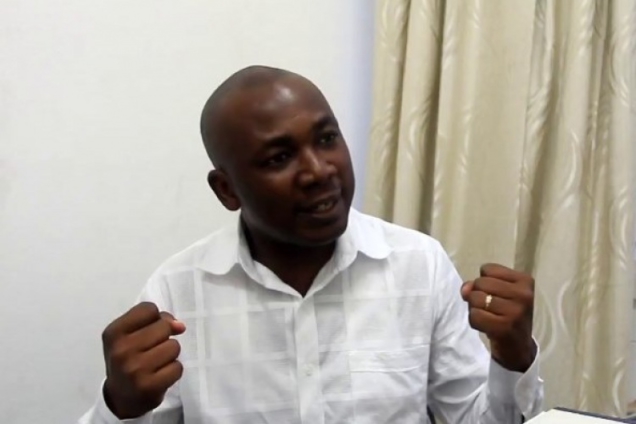
Audio By Carbonatix
Associate Professor of Finance at the University of Ghana Business School, Professor Godfred Bokpin says Government has been insensitive to Ghanaians in efforts to revive the economy.
The Economist said the Akufo-Addo-led administration, despite its advocacy for burden-sharing has not done much in that regard.
He explained that the only reason there are resentments and disapproval of the debt exchange programme is due to government’s failure to demonstrate equity, fairness and burden-sharing.
Prof. Bokpin noted that in the current difficult times, the government’s call for burden-sharing should be exhibited through cutting down expenditure and the size of government.
“This is a government that has preached burden-sharing more in words and practiced less in reality and that is what makes it painful. I believe that the reactions we are getting from organised labour and different occupational groups and a lot of stakeholders that will be affected by the debt exchange, are actually a resentment for the government’s insensitivity.
“Government has done very minimum in burden-sharing. In times like this the low-hanging fruits essentially are cutting down the size of government, merging some of the ministries because money is not flowing,” he said on Top Story, Monday.
Government has announced a ten-day deadline for Domestic bondholders to exchange their investment instruments to the new modalities set by government under the Domestic Debt Exchange programme.
Reacting to this, Prof. Bokpin said government’s decision is a harsh one. He argued that the deadline given to the bondholders will not provide enough time for the financial institutions to be engaged in internal processes before subscribing.
“The approach I see the government is using is more or less through regulatory cohesion to bring participating financial institutions into compliance. Even if you look at the timelines that government has given, it does not even allow for internal processes and governance processes within the respective participating financial institutions to be respected.
“This is a significant event and some may even require shareholder and board approval and all of that and so how do you just put pressure on heads of institutions to commit their institutions to something like this,” he queried.
A number of key interest groups have opposed the debt exchange programme with concerns that it will affect their investments.
The Chamber of Corporate Trustees of Ghana, the Trades Union Congress, the Ghana Medical Association, the Ghana National Association of Teachers and other groups have all rejected the programme.
Latest Stories
-
Premier League deletes Vicario social media post
16 minutes -
Real Madrid beaten at home by Getafe for second successive loss
25 minutes -
‘Clubs refused to look at me after my crash’ – Antonio on Qatar move
36 minutes -
Mayweather to fight kickboxer before Pacquiao rematch
46 minutes -
India and Canada reset ties with ‘landmark’ nuclear energy deal
55 minutes -
Mahama should equally credit NPP for economic stability – Economist
58 minutes -
Mbappe has knee sprain with no surgery planned
1 hour -
Interior Ministry releases funds to settle 2025 rent allowance arrears for security services
2 hours -
Ghana evacuates diplomatic staff from Iran; embassy shut indefinitely — Ablakwa
2 hours -
France to boost nuclear arsenal and extend deterrence to European allies
2 hours -
Chinese community in Ghana marks ‘Year of the Horse’ with grand new year festival
2 hours -
When regional instability becomes national risk: Ghanaian tomato traders killings
2 hours -
Photos: President Mahama meets Tanzania President Suluhu Hassan
3 hours -
Mahama calls for cessation of Iran-US-Israel conflict, urging return to dialogue
3 hours -
Fuel prices could rise if Middle East conflict escalates – ACEP Boss
3 hours

